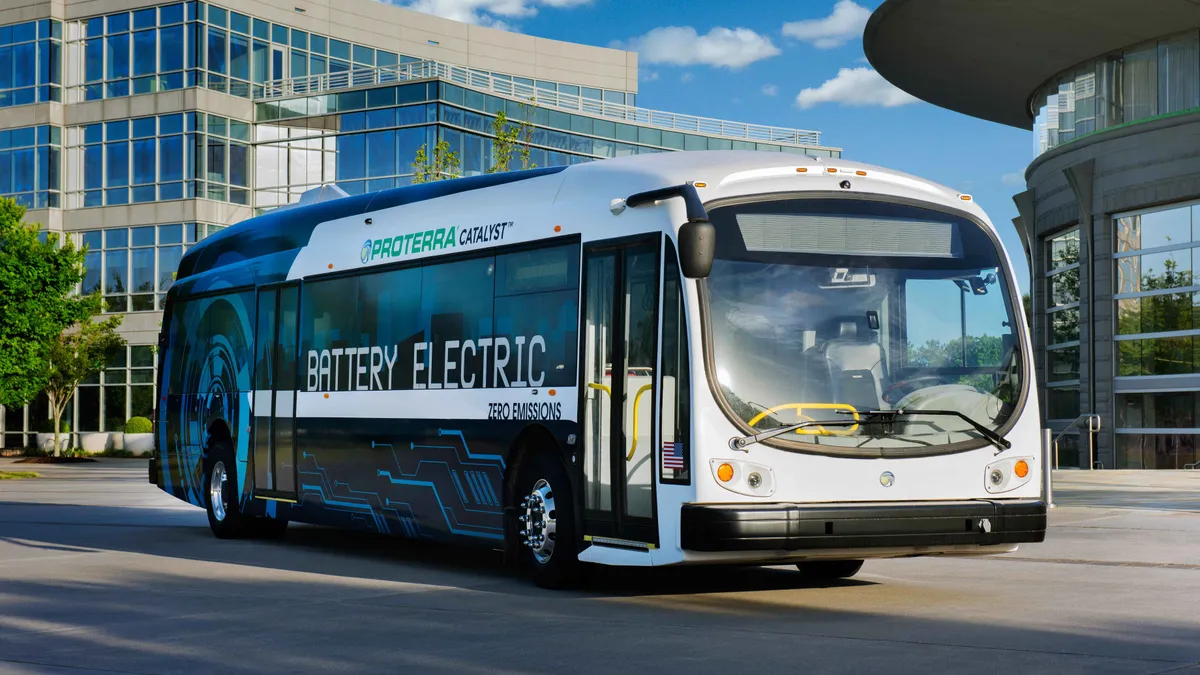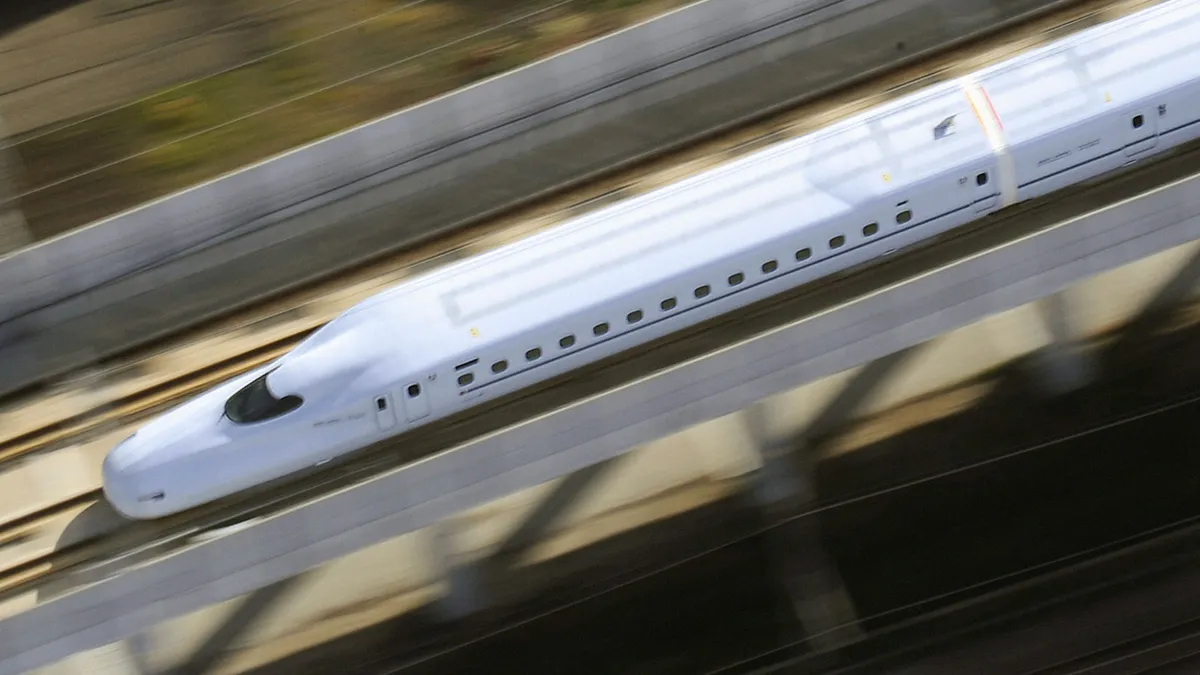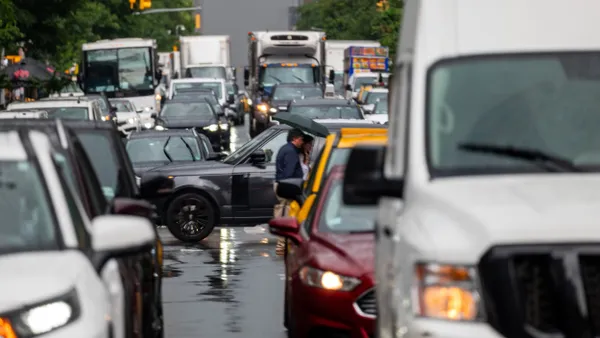Dive Brief:
- Pittsburgh-based Group Against Smog and Pollution (GASP) told StateImpact Pennsylvania that schools and cities should do more to take advantage of electric buses "wherever possible."
- That call followed the release of a report by PennEnvironment that said that if the state transitions all its diesel school buses to electric, it would avoid 155,000 tons of pollution each year.
- The report also found that approximately 95% of U.S. school buses currently run on diesel.
Dive Insight:
Cities across the country would likely make the argument that their transition to electric buses is part of a wider strategy, and they remain committed to reducing emissions and being more environmentally friendly. In the past few months alone, Washington, DC, St. Louis, San Diego and Alaska have been among those to either introduce or receive funding for such vehicles, with more surely to follow.
And in recognition of the seriousness of the problem of emissions from diesel-powered buses, the U.S. Department of Transportation’s Federal Transit Administration awarded $264 million in grants to improve city bus systems, including to help jurisdictions buy more environmentally-friendly buses. And in the report’s release, there is a recognition of the work already underway. "Major cities across the world have committed to protecting public health and the climate by transitioning to 100 percent all-electric buses," Kelly Flanigan, Global Warming Solutions Associate for the PennEnvironment Research & Policy Center, said in a statement.
But cost remains a major factor. StateImpact reports that while the likes of Philadelphia and the Port Authority of Allegheny County are buying electric buses, it costs less than half as much to buy buses of the diesel variety. And logistics can also play a part, as electric buses are limited to traveling 130-150 miles on a single charge, which is not enough to cover some routes which could be as long as 300 miles.
The report’s findings, especially that transitioning Pennsylvania’s 2,400 transit buses to all-electric could avoid about 450,000 pounds of nitrogen oxide and nearly 2,000 pounds of particulate matter each year, should help persuade local governments to keep doing more. And in reducing pollution, the transition helps with health risks such as asthma and other respiratory diseases. "We know electric buses are the wave of the future," Pennsylvania Rep. Ed Gainey, D, said in a statement.











